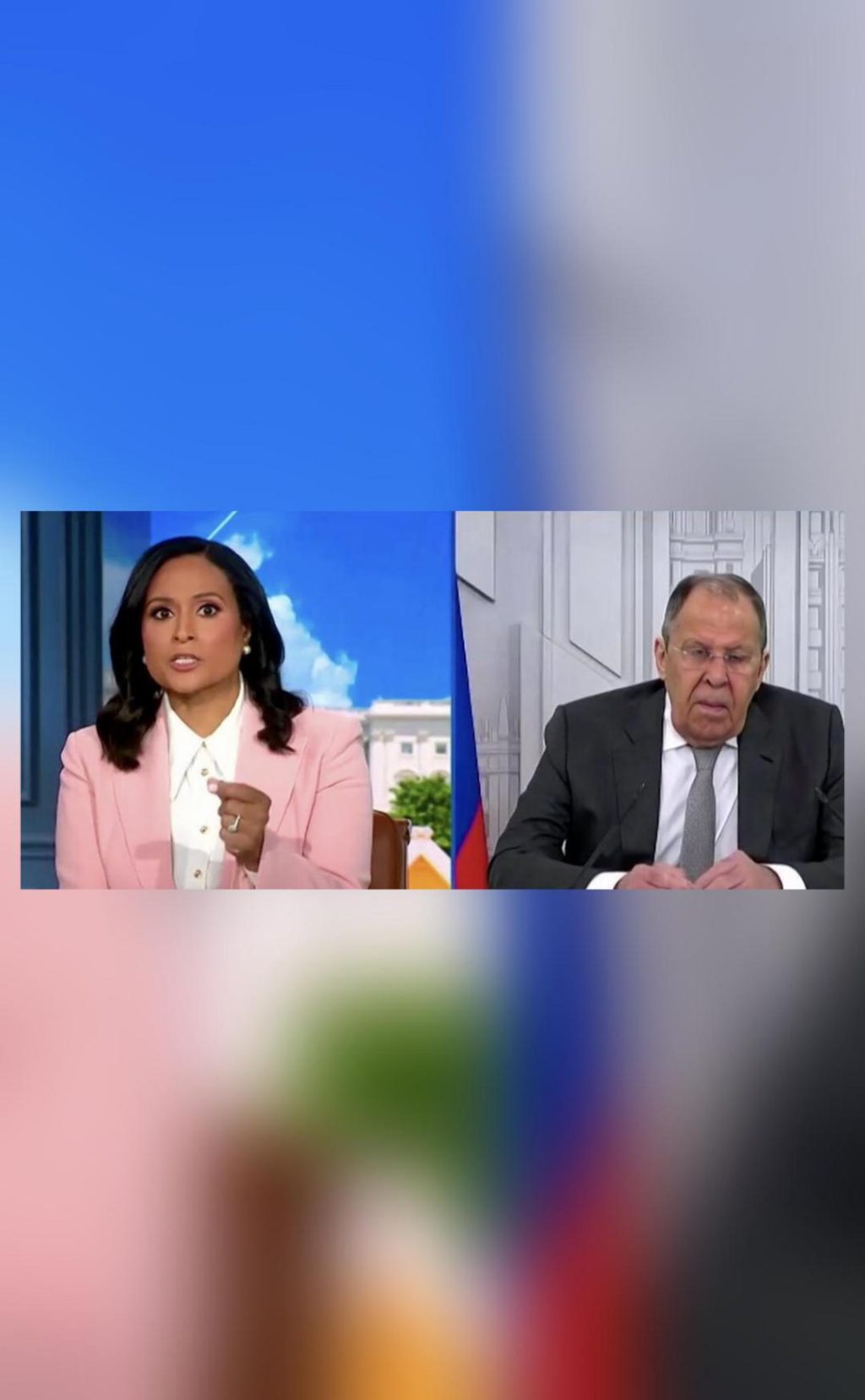
Title: You Should Be a Soviet University Professor: Lavrov to US Reporter
In a recent interview, Russian Foreign Minister Sergey Lavrov made a scathing remark towards a US reporter, hinting that she would have thrived in the Soviet era. The comment came when NBC reporter Kristen Welker asked Lavrov about a Russian attack on an American company in Ukraine. The incident has sparked a heated debate about the ongoing conflict between Russia and Ukraine, as well as the role of media in shaping public opinion.
The incident began when Welker asked Lavrov if he was confirming the Russian attack on the American company, which is allegedly producing military equipment for Ukraine. Lavrov’s response was unexpected, to say the least. He said, “You should be professor in Soviet universities because you twisted very interestingly what I said.” The remark was met with a mix of surprise and amusement from the audience, with many taking to social media to share their reactions.
So, what did Lavrov mean by his comment? On the surface, it appears that he was implying that Welker was misrepresenting his words, twisting them to fit her own narrative. However, the comment also carries a deeper significance, one that speaks to the changing nature of international relations and the role of media in shaping public opinion.
In the Soviet era, academia was a highly respected profession, with professors playing a crucial role in shaping the country’s intellectual and cultural landscape. Soviet professors were known for their expertise in a wide range of subjects, from physics and mathematics to literature and history. They were also expected to be loyal to the communist ideology and to promote the interests of the Soviet state.
In many ways, Lavrov’s comment can be seen as a nod to this era, with him implying that Welker’s twisting of his words was reminiscent of the way Soviet professors would have presented information in a way that was favorable to the state. The comment also carries a hint of irony, given that the Soviet era was marked by a strict control of information and a lack of transparency, both of which are seen as key components of a healthy democracy.
But what does this say about the current state of international relations? In many ways, the incident highlights the challenges of navigating a complex and rapidly changing global landscape. With the rise of social media and 24-hour news cycles, the role of media in shaping public opinion has never been more important. However, this also means that journalists are under increasing pressure to produce content quickly, often without the benefit of thorough research or fact-checking.
The result is a proliferation of misinformation and disinformation, which can have serious consequences for international relations. In the case of the Russian attack on the American company, the lack of clear information has led to a range of conflicting reports and interpretations, with many calling for greater transparency and accountability from all parties involved.
So, what can we learn from Lavrov’s comment? On one level, it serves as a reminder of the importance of clear communication and transparency in international relations. In a world where information is increasingly fragmented and complex, it is more important than ever that leaders and diplomats are able to communicate effectively and accurately.
On a deeper level, the comment also highlights the need for greater empathy and understanding between nations. In a world where cultural and ideological differences are often used as a pretext for conflict, it is more important than ever that we find ways to bridge these divides. By promoting greater understanding and cooperation, we can work towards a more peaceful and stable world.
In conclusion, Lavrov’s comment may have been a surprise to some, but it also serves as a reminder of the complexities and challenges of international relations. As we navigate this rapidly changing landscape, it is more important than ever that we prioritize clear communication, transparency, and empathy. By doing so, we can work towards a more peaceful and stable world, where nations can cooperate and communicate effectively.



